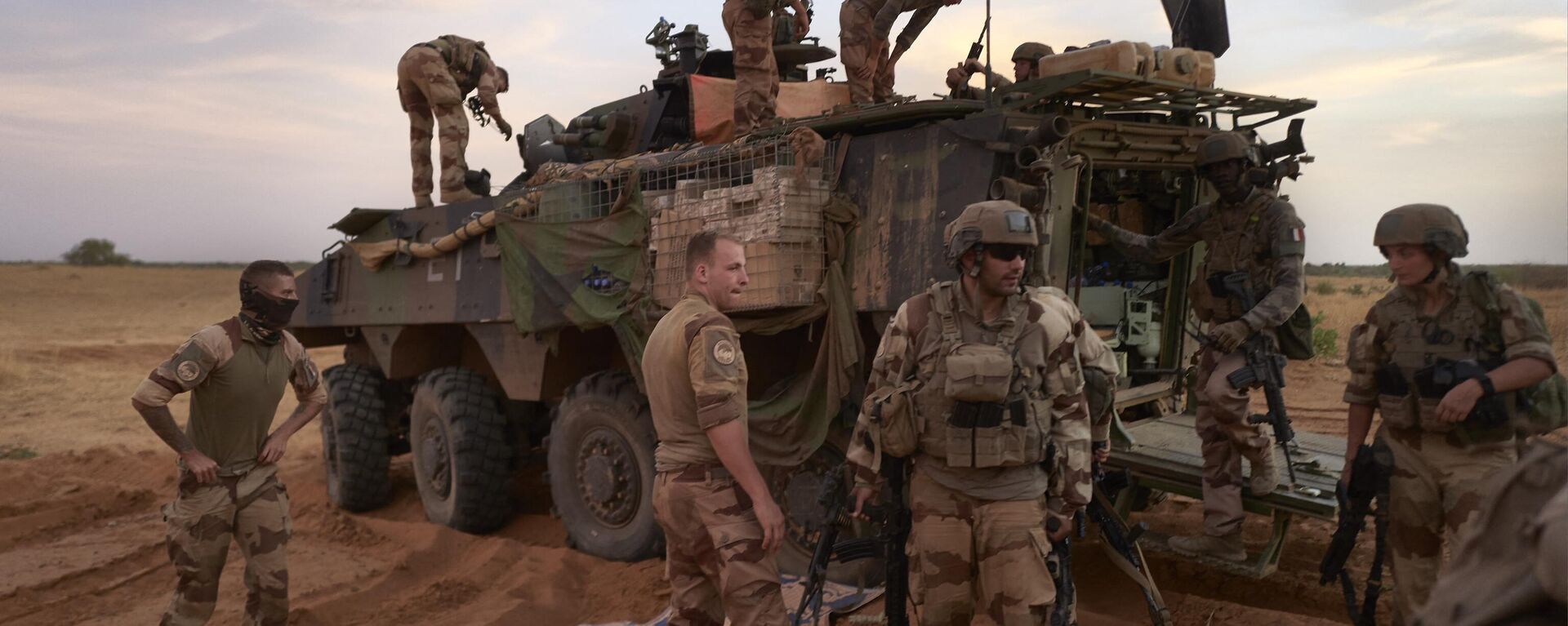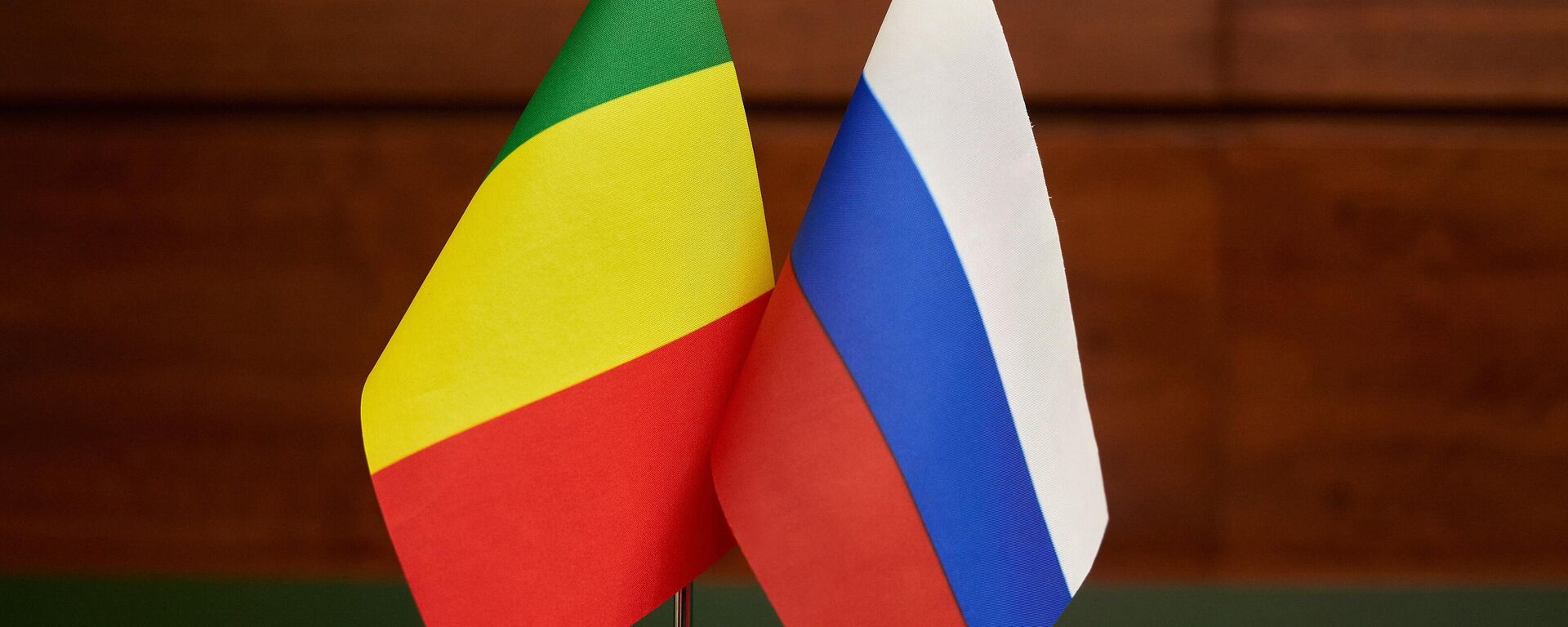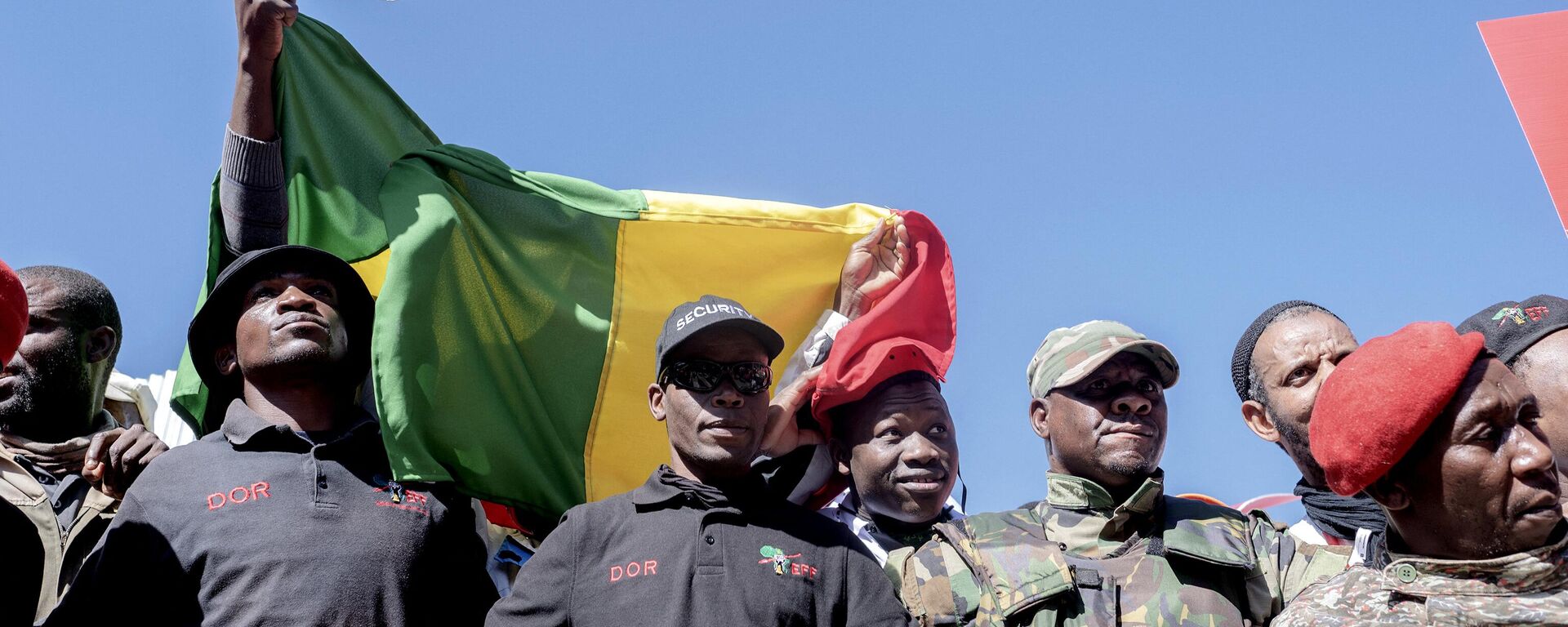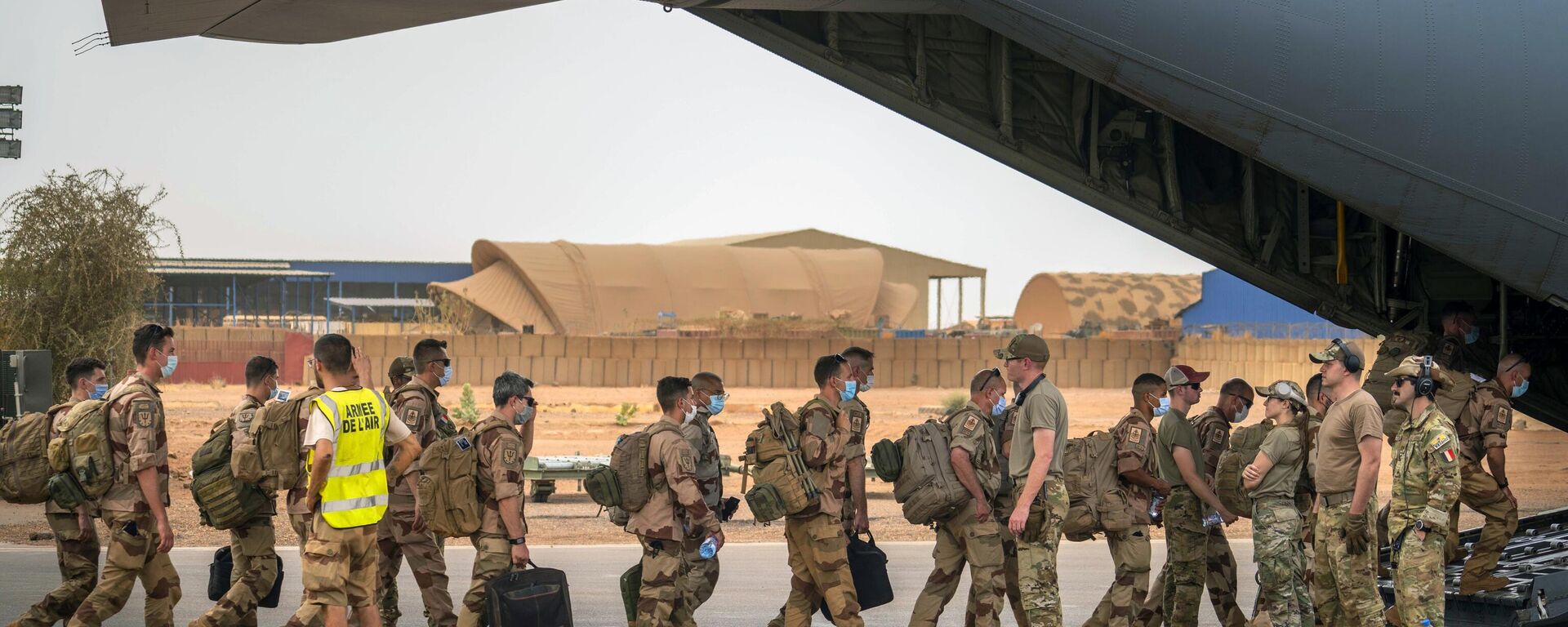Fighting Remnants of Colonialism: Why Young People in Burkina Faso Seek Political Change
08:22 GMT 30.01.2023 (Updated: 07:10 GMT 02.02.2023)
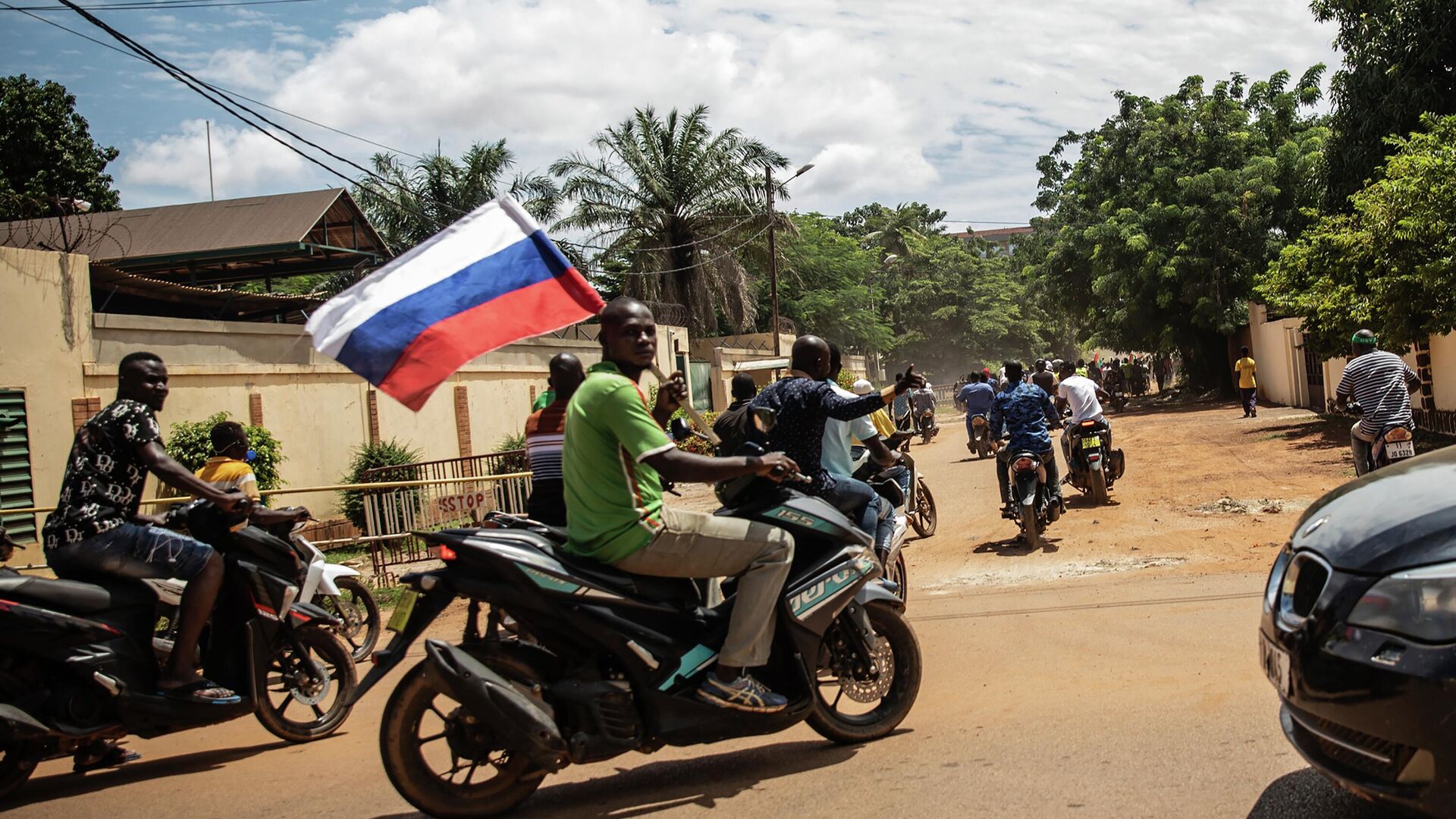
© AP Photo / Sophie Garcia
Subscribe
Longread
MOSCOW (Sputnik), Tommy Yang - Despite the apparent political chaos following two military coups in Burkina Faso in 2022, young activists in the Western African country explained to Sputnik why they largely supported political changes they viewed as opposing France's colonial influence.
Growing up in Bobo-Dioulasso, a city known as the economic and cultural capital of Burkina Faso, Abdoul Salam Koussoube was fortunate to be able to follow his passions and become a cultural project manager. He worked on various film productions, participated in film festivals and attended cultural events.
However, similarly to many young people in the West African country today, Koussoube also actively advocated for social justice issues, especially the lingering problems resulting from over 60 years of French colonization.
"I have been interested in the social, cultural and political issues of our colonized African state for more than 10 years. I'm an activist advocating for more social justice in the world," Koussoube, who is in his 30s, told Sputnik.
As a country that experienced two military coups in 2022, Burkina Faso appeared to be facing a lot of uncertainties amid the political crisis. But for young local activists like Koussoube, the political unrest in the country represented the younger generation's call for changes, and the military coups largely received popular support.
"Recent events force us to revisit History, when this country experienced a progressive military regime that changed its destiny forever from 1983-1987. We dare to believe and hope that the current authorities are working in the same direction, even if it must be recognized that the mechanisms of oppression of imperialism do not make the task easy. Personally, my hope comes from the fact that it is the younger generation, especially those who are out of school and excluded from the system of governance, that are currently leading the revolt against Western influences as well as against local valets," he said.
Africa's Che Guevara
In 1983, Thomas Sankara, a leftist and Pan-Africanist officer, led a military coup in the country when it was still known as the Republic of Upper Volta. Under his anti-imperialist agenda, Sankara introduced a series of progressive reforms that aimed to eliminate the dominance of French colonial power and address social inequalities. He changed the country's name from Upper Volta to Burkina Faso, which means "Land of the Incorruptible People."
As one of the most charismatic revolutionary leaders during that era, Sankara was often referred to as "Africa's Che Guevara [the iconic revolutionary from South America]" by his supporters.
For many young people in Burkina Faso, the military coups in January and September 2022 brought back memories of Sankara's efforts to root out colonial influence from France in the country.
"We are a generation of people who want to feel equal to other peoples in terms of education, health, economy, and affirmation of our identity. Yet our rulers, who are local lackeys of imperialism, are unable to satisfy our aspirations. This is the origin of the crisis," Koussoube said.
The young activist went on to explain how the nation's previous leaders, who were supposedly voted into office through democratic elections, failed.
"Power is centralized in the hands of a few individuals, while communities are manipulated and instrumentalized. We have been experiencing this for more than two decades. It is the inability of democratically elected rulers, due to corruption, mismanagement and nepotism. This is what led to the coup d'etats that were generally welcomed by the general population who do not want more of those 'pseudo-intellectual’ elites and politicians'," he said.
Say No to French Troops
In a similar vein to what happened in neighboring West African countries following political changes in recent years, one of the key demands of the new government in Burkina Faso was to ask France to withdraw its troops from the country.
The French Foreign Ministry said on Wednesday that France planned to withdraw its troops from Burkina Faso next month, following continued protests against its military presence in the West African country. The move came after a similar withdrawal of French troops last year from neighboring Mali, where two military coups took place in 2020 and 2021, respectively.
As Burkina Faso has been battling Islamic insurgents in the northern part of the country in recent years, Western analysts expressed concern that the withdrawal of French troops, who were dispatched to fight the insurgency, could destabilize the security situation in the region further.
However, other activists supporting the Pan-African movement argued that it was time for West African nations to take their destiny into their own hands.
"I think what happened in Mali has had the biggest influence on Burkina Faso with the transition government affirming its stance against the French military. I think the vision objective unites a lot of Pan-Africans," Inem Richardson, a coordinator of the All-African People's Revolutionary Party who is based in Ouagadougou, Burkina Faso, told Sputnik.
The activist explained why many African countries have begun to take a more active stance on moving away from political and economic influence from the European countries that used to colonize the continent.
"I think people are also aware that, right now, we're seeing a world that is change. For a very long time, the world was dominated exclusively the United States and its allies, including the European Union countries. That's what's been dominating the Burkina Faso economy and benefiting from the resources of not only Burkina Faso, but also Africa as a whole. Too much of our history is tied to colonialism and imperialism. I think the end goal is for more African countries to leave the Western camp or influence. They can unite with each other. I think that's a pathway towards African unity," Richardson said.
Alternative Partners
When the military coups took place in a number of Western African countries, such as Mali or Burkina Faso, in recent years, a number of Western media outlets speculated about the alleged involvement of Russia.
As a result of increased Chinese investments in Africa in recent years, China has also faced accusations of bringing a new form of neo-colonialism to the continent.
But for Richardson, the track records of new partners like Russia or China are still different from Western countries that used to colonize the continent directly.
"The world needs African resources. I'm aware of that. At the same time, I don't think Russia, China or Iran have the same long colonial history with African countries. I don't believe it is the same thing. I will believe it when I see a Russia or Chinese backed military coup overthrowing a leader. Up until now, I don't think it's fair to say it's the two sides of the same coin. Right now, I don't think most people are worried about Russia or China trying to take over Africa," she said.
Although Richardson is an African American born in California, she moved to Burkina Faso about year and a half ago.
"One of the things we strongly believe is that, until Africa is free, no African anywhere in the world will ever be free or respected. The way we see it is: we need to have a home base that is liberated and free of imperialism," she said.
Koussoube, the local activist from Burkina Faso, also stressed the importance of Africa's growing independent role in the global system.
"We talk about globalization. What is really Africa's share in this globalization? Are we unable to contribute? Or is it rather the consequences of slavery, colonialism and today's neo-colonialism that prevent us from doing so? In fact, we young Africans want to learn to do things by ourselves, without assistance or condescension," he said.

